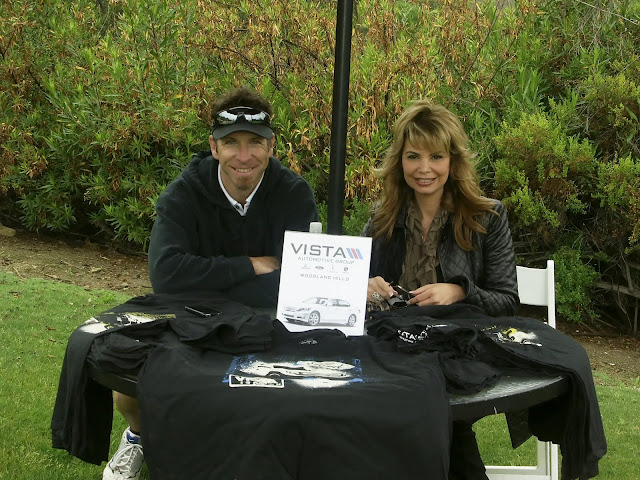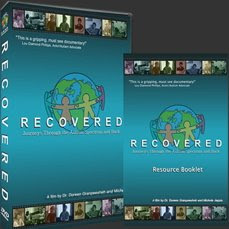"The Center for Autism and Related Disorders is proud to be a part of this year's tournament fundraiser," says CARD Founder and Executive Director Dr. Doreen Granpeesheh. "Through direct donation, corporate sponsorship and community generosity, ACT Today! is changing the lives of children with autism."
CARD was joined by celebrity golfers, including: NFL Super Bowl Champions Chris Hayes and Ed Marinaro, Racecar Driver / Model Ashley van Dyke, Mark Christopher Lawrence ("Chuck"), Ron Masak ("Murder She Wrote"), Basil Wallace ("Blood Diamond"), Racecar Champion Charles Downes, Bill Smitrovich ("Castle" and "Seven Pounds"), the LA Kings Girls, Veteran Entertainment Reporter Tina Marie Tyler, and Comedian/Actor John Byner.
One in 110 children in America is diagnosed with autism. Autism is more prevalent than pediatric cancer, AIDS, and diabetes combined.
"The funds raised through ACT Today!'s 4th Annual Charity Golf Tournament will help provide therapy, social skills groups, biomedical treatment, helmets and more," says Tournament Director Stefan de Nocker. "These funds will provide these tools for children whose parents can not afford to provide these necessary tools for their child to live a productive life."
Other corporate sponsors of the 4th Annual Charity Golf Tournament include: TWIW Insurance (Presenting Sponsor), United Healthcare, City National Bank, Apothe'Cure, Inc., Paul Mitchell, GolfSmith, Five Star Golf, Carole Young Brooke Foundation, Hope Wine, The Auto Gallery, Food Should Taste So Good, Wines for Autism, Ener-G Foods, Anhueser Busch, Mandalay Bay, Murad, Inc., One West Bank, The Littlest Golfer, Vista Automotive, Wendy's, Capital Retirement Group, Lockheed Federal Credit Union, Allied Beverages, Arthur Murray Dance Studio, Links for Luv, and Players' Golf Club.
Visit http://www.golfforautism.blogspot.com/ for a listing of all sponsors and donors who made the 4th Annual Charity Golf Tournament a success.
For more information about the Title Sponsor, visit http://www.centerforautism.com/.
For more information about Autism Care and Treatment, visit http://www.act-today.org/.
For more information about the annual Charity Golf Tournament, visit http://www.golfforautism.net/.
Click on each image to enlarge.
TITLE SPONSOR
The Center for Autism and Related Disorders, Inc. (CARD), world renowned for effectively treating children with autism.
Center for Autism and Related Disorders, Inc. Founder and Executive Director, Dr. Doreen Granpeesheh waves to golfers and cheers them
on during Shotgun Start
CARD Founder and World-renowned autism expert, Dr. Granpeesheh thanks golfers for joining CARD (Title Sponsor) in supporting****
ACT Today's 4th Annual Charity Tourney
Eric Schwartz of The Auto Gallery listens to Comedian John Mendoza
and Actor Joe Mantegna as they host the Dinner Program
Porsche Panamera Provided by The Auto Gallery
****
PAUL MITCHELL - EVENT SPONSOR
Paul Mitchell's Director of Media Alexandra Goodman
mingles with golfers during Tournament Registration
****
FIREMEN'S BREW - EVENT SPONSOR
Firemen's Brew sets up a tent on course
with an assortment of beers for the golfers
****
VEHICLE SPONSOR - VISTA AUTOMOTIVE
Ford GT Provided by Vista Automotive
****
WATER BEVERAGE SPONSOR
METROMINT
****
ON-COURSE COMPLIMENTARY CIGARSProvided by Fat Stogies
****
ON-COURSE COMPLIMENTARY BEVERAGESProvided By
Anhueser Busch and Allied Beverages
****
Provided by Hope Wine
****
FOOD SHOULD TASTE SO GOODand ENER-G FOODS

CELEBRITY GOLFERS
Seated - Actor/Comedian John Byner, Comedian John Mendoza, LPGA Golf Pro Karyn Dunphy, Champion Racecar Driver Charles Downes. 2nd Row: Actor/Comedian Mark Christopher Lawrence, World-renowned autism expert Dr. Doreen Granpeesheh, Golf Pro Eva Yoe, Entertainment Reporter Tina Marie Tyler, ACT Today! Executive Director Nancy Alspaugh-Jackson, Tournament Director Stefan de Nocker. 3rd Row-Actor Ron Masak, Racecar Driver/Model Ashley van Dyke, NFL Super Bowl Champion Chris Hayes, Actor Joe Mantegna, Actor Bill Smitrovich, Actor/NFL Super Bowl Champion Ed Marinaro.
Autism Care and Treatment's Executive Director
Nancy Alspaugh-Jackson speaks during Dinner Program
Actor Joe Mantegna - giving send off at Shot Gun Start
Comedian John Mendoza host the Live Auction
portion of the Dinner Program
This was an absolutely AMAZING DAY," says Event Executive Producer Daphne Plump. "We are so thrilled that over 100 advocates came out to support Autism Care and Treatment! The funds raised through this event will help provide much needed therapy, biomedical treatments, social skills groups, and more for children with autism, whose families can not afford these necessary tools for their child to live a productive life."





























